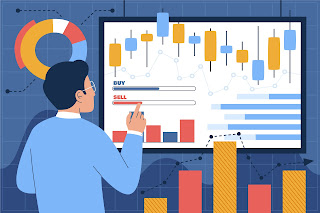A guide to the different aspects of future trading and option trading
When we talk about the stock market, we usually think of bidding and
asking prices. We also usually think of a particular stock. But this is
a very limited way of looking at the stock market. In reality, the
stock market is made up of many different kinds of securities, each of
which has its own bid-ask spread. Investing in stocks and shares is a
great way to improve your financial future. To help yourself get ahead,
you need to have the edge and that means know a bit about the world of
future trading and options. This blog will cover a guide to that.
What is Future Trading?
Future trading is essentially a contract that is agreed to be exchanged for another at a given price on a certain date. This means that you don't pay the full price for the asset right away, but instead, only pay a fraction of the price known as the margin. There are two types of future trading - cash and derivative. Cash future contracts are more popular as they require less margin and are easier to trade. Derivative contracts are less popular but are usually more profitable.
The futures market is a place where traders can buy or sell a contract to buy or sell a certain commodity at a certain price on a certain date in the future. Futures contracts are standardized agreements for delivery of a commodity at a predetermined future time and at a predetermined price. The contract may be traded on an exchange or over-the-counter.
What is Option Trading?
An option is a contract that gives the holder the right to buy or sell an underlying asset at a specific price within a specific time period, with the understanding that the contract will expire at the end of the time period if it is not exercised. When it comes to trading options, you have to understand that there are different kinds of options you can trade. There are call options and put options and there are also options that are known as binary options. When you trade options, you are making a bet on the future trading price of an underlying asset, like gold for example. The price of an option is dependent on several factors such as the strike price, the price of the underlying asset and the current price of the underlying asset.
Why futures and options are so popular?
Futures and options are popular because they have a number of advantages over other trading methods. Both allow you to buy and sell financial assets at agreed prices in the future. This gives you the opportunity to take advantage of expected price movements without having to buy the assets itself. Futures and options are also flexible and allow you to manage your risk. They also give you the opportunity to invest in assets without having to deposit the full investment amount in one go.
Conclusion
We know that there are many different aspects that you can be aware of when trading in either form of contract. We hope that our blog was able to provide you with some useful information on the different aspects of trading futures and options. For more information you can also contact best F&O tips provider in India.





Comments
Post a Comment